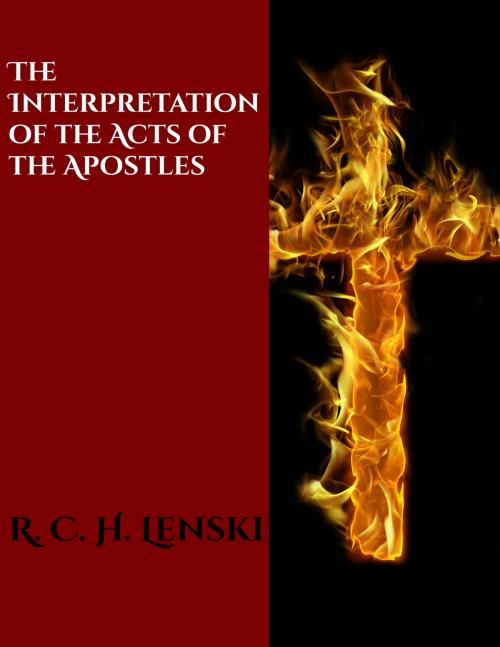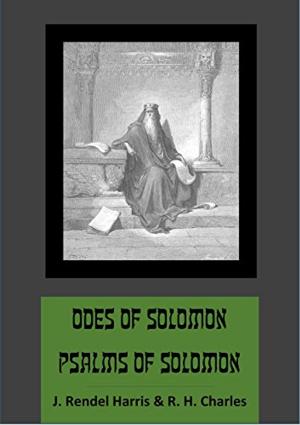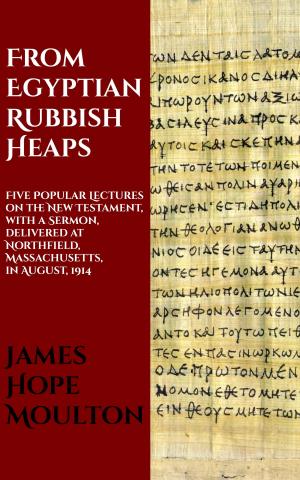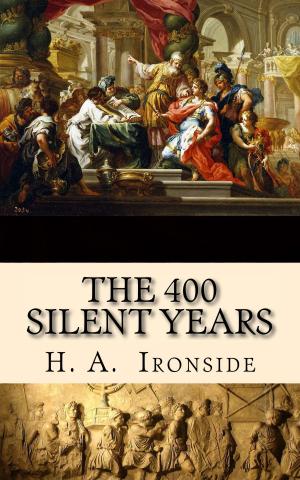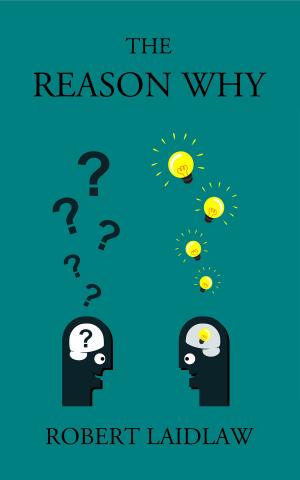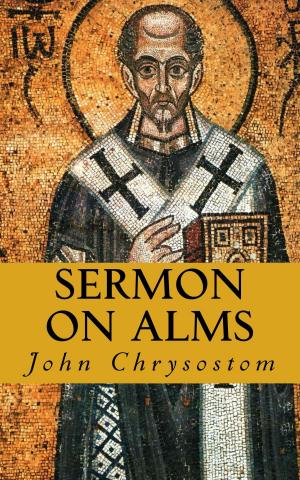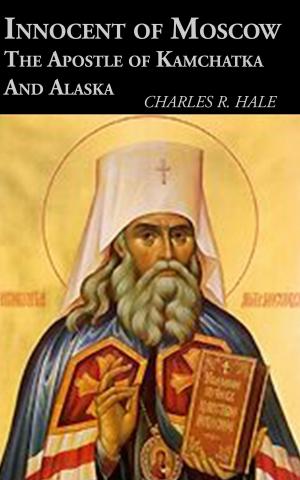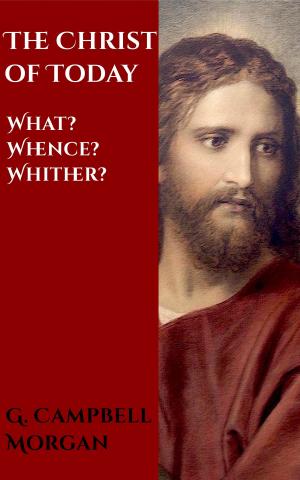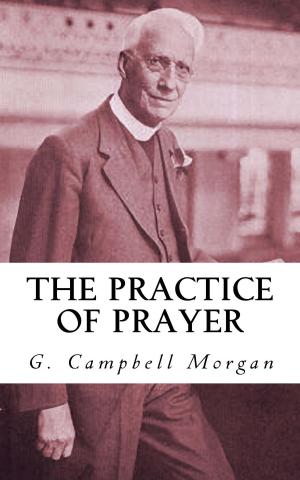The Interpretation of the Acts of the Apostles
Nonfiction, Religion & Spirituality, Christianity, Christian Literature, Bible & Bible Studies, Criticism & Interpretation| Author: | R. C. H. Lenski | ISBN: | 1230001934861 |
| Publisher: | CrossReach Publications | Publication: | September 26, 2017 |
| Imprint: | Language: | English |
| Author: | R. C. H. Lenski |
| ISBN: | 1230001934861 |
| Publisher: | CrossReach Publications |
| Publication: | September 26, 2017 |
| Imprint: | |
| Language: | English |
Luther regarded Acts as a beautiful mirror in which one beholds the truth: Sola fides justificat. The fathers likewise admired the contents of the book, noting the great variety of subjects and the immense value of each: the great testimony in regard to the apostolic doctrine and the church; the fundamental outline of church government, church discipline, and church organization; an arsenal full of artillery against the antichrist; a laboratory full of remedies against all soul-destroying errors of faith and offenses in conduct; a larder stocked with all kinds of food for faith, patience, and hope; an inspiration for love and all its works; a very treasury of learning and right doctrine. By adding what students at present see in this great record we should become superficial if we lost or ignored this fundamental viewpoint of an earlier age.
One may say that the skies are now clearing after the critical storms that have raged around Luke and especially around Acts. These storms had very little to do with the things that made Acts so valuable to Luther and to the older students. They hurled their thunderbolts into the isagogical questions, those that concern themselves with authorship, sources, aims and tendencies, historical accuracy, method of composition, agreement with the data in Paul’s epistles, and similar matters. A calmer, brighter day has come for Acts. When we consider that in this book Luke mentions one hundred and ten names of persons and many groups of persons besides; gives a long list of places and of provinces in the empire; furnishes all manner of geographical and of historical data that transfer us into an ancient age in which he moved with the greatest freedom and assurance, we see how readily the author made possible many questions for all critics who cared to challenge him on any of these points on the basis of their secular knowledge of the era in which Acts must be placed. No other New Testament book presented so wide and so inviting a field for investigation and for criticism.
But when we now survey the scene, although attacks have not entirely ceased, we must register the fact that the vindication of Luke is complete. Those have gone down in defeat who thought they had made breaches in Luke’s citadel. Not even one pinnacle of his fortress did their critical artillery dislodge. The result of all this criticism has been tremendously valuable especially for our age. The sounder the learning, the more extensive the research, the truer the critical tests, the more complete is the assurance that Acts is trustworthy on every point, and that any further investigations will end as the many intensive ones in the past have ended. Acts is today better known as to its external side than it has been at any time since the book was written.
Luther regarded Acts as a beautiful mirror in which one beholds the truth: Sola fides justificat. The fathers likewise admired the contents of the book, noting the great variety of subjects and the immense value of each: the great testimony in regard to the apostolic doctrine and the church; the fundamental outline of church government, church discipline, and church organization; an arsenal full of artillery against the antichrist; a laboratory full of remedies against all soul-destroying errors of faith and offenses in conduct; a larder stocked with all kinds of food for faith, patience, and hope; an inspiration for love and all its works; a very treasury of learning and right doctrine. By adding what students at present see in this great record we should become superficial if we lost or ignored this fundamental viewpoint of an earlier age.
One may say that the skies are now clearing after the critical storms that have raged around Luke and especially around Acts. These storms had very little to do with the things that made Acts so valuable to Luther and to the older students. They hurled their thunderbolts into the isagogical questions, those that concern themselves with authorship, sources, aims and tendencies, historical accuracy, method of composition, agreement with the data in Paul’s epistles, and similar matters. A calmer, brighter day has come for Acts. When we consider that in this book Luke mentions one hundred and ten names of persons and many groups of persons besides; gives a long list of places and of provinces in the empire; furnishes all manner of geographical and of historical data that transfer us into an ancient age in which he moved with the greatest freedom and assurance, we see how readily the author made possible many questions for all critics who cared to challenge him on any of these points on the basis of their secular knowledge of the era in which Acts must be placed. No other New Testament book presented so wide and so inviting a field for investigation and for criticism.
But when we now survey the scene, although attacks have not entirely ceased, we must register the fact that the vindication of Luke is complete. Those have gone down in defeat who thought they had made breaches in Luke’s citadel. Not even one pinnacle of his fortress did their critical artillery dislodge. The result of all this criticism has been tremendously valuable especially for our age. The sounder the learning, the more extensive the research, the truer the critical tests, the more complete is the assurance that Acts is trustworthy on every point, and that any further investigations will end as the many intensive ones in the past have ended. Acts is today better known as to its external side than it has been at any time since the book was written.
